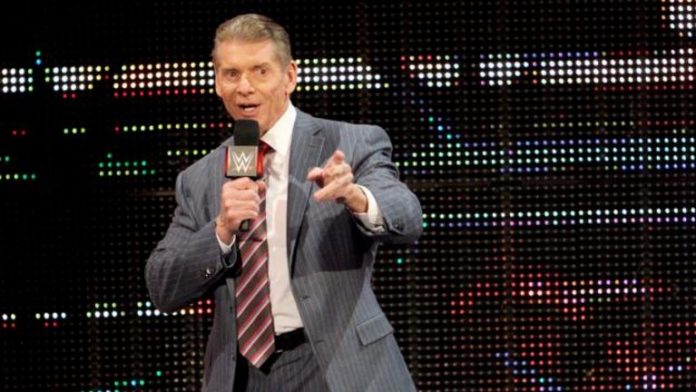
Last week, WWE made headlines on social media, as it was revealed that all talent under contract must end their deals with third parties, even if its under their real names. The controversial decision will see platforms like Cameo, Twitch, and other social media outlets affected, which are a considerable revenue source for some on the roster. There are a few different ways to look at this scenario, but none of them are a good look for the global publicly-traded company. The WWE is a billion dollar promotion and has boasted about record-setting revenue on recent conference calls so it’s difficult to see the organization as losing profits on cameo deals, whereas that cash makes a difference to the independent contractors that work for WWE. Speaking of which, management might be opening Pandora’s box with this decision because it puts a spotlight on pro wrestlers’ status as somehow independent contractors, despite the exclusivity and restrictions that go along with a WWE contract.
How professional wrestlers fall under 1099 status has been a subject of debate for a few decades, and this latest restriction might get someone with authority to actually examine the issue when they might’ve not noticed otherwise. Granted, those within the industry or that follow it closely can cite the numerous conflicts of a pro wrestler’s job with the criteria of a truly independent contractor, but as far as government regulation of that protocol, the only interest is to collect the taxes from the events. But, why exactly would WWE brass decide this is a policy that is worth to enforce, especially because they are already going to generate record profits this year?
The petty answer is that Vince McMahon wants a cut of the cash from Cameo, Twitch, etc. On the surface it might make sense because the TV time those athletes get on his show allow them to become known commodities, but at the same time, Vince wouldn’t be the CEO of a billion dollar organization without the talent that draws fans so it’s a two-way street.
The more probable answer is that if WWE talent can make a name for themselves, and more importantly, make considerable money for themselves, they have more leverage in negotiations with the company. Just as an example, if Xavier Woods’ Youtube channel helps him maintain his popularity without continuous WWE exposure than he has more options when he attempts to sign a new deal. In many ways, for decades, professional wrestlers have been beholden to the promoter because the exposure a company offered was the best way to become a star in the industry. Greg Valentine is still taking indy bookings mostly based on his WWF run in the 80s. In the early 2000s, someone that had a cup of coffee on Raw could rest assured they’d get indy work and probably a TNA run strictly based off of that stint on WWE TV. The bottom line is, being featured on Vince McMahon’s program was the biggest way to not only make money, but to assure some level of success based off of it in the years that followed.
As is the case with most entertainment ventures in the digital age, social media can have a major impact on someone’s status within their field. Youtube creators and Instagram influencers that I’ve never heard of can gain product sponsorships and make $50 a piece for Cameo videos. The professional wrestling industry is no different, and the evolution of the concept of All Elite Wrestling is proof of just how powerful social media can be if the right talent use it in the right way. Granted, Twitter doesn’t make anyone a great performer in the ring, but it gave them a spotlight to get themselves over and thus show fans how great they are in the ring. The Young Bucks were underutilized talent in TNA, Cody was misused in WWE, and Kenny Omega was working in Japan for a diehard audience as far as the American demographic. Until a social media presence allowed them to build a buzz for themselves and the right opportunities came along at the right time with the right talent, which is something that can’t be designed or planned. These guys made themselves bigger stars on their own than when they had cable TV exposure, and sold out a major venue more or less based on social media hype. Tony Khan happened to see that and was willing to invest the funds to launch a promotion, which is now a profitable venture on TNT.
From purely a promoter stand point, there’s no reason Vince wants any of his contract talent doing anything outside the realm of WWE because the more over wrestlers are without WWE, the less power Vince has as the boss. Don’t get me wrong, this isn’t a jab at Vince, the sparring session between promoters and talent has always happened across the board in entertainment. The promoter trying to maximize his profits while the talent attempt to get the best deal possible for themselves is the nature of the beast.
Still, how this is handled by the talent and where it goes might have more of a ripple effect than Vince intended. I doubt this is based on Vince getting a slice of cameo or Twitch revenue and much more to do with the talent getting themselves more well-known outside of WWE. A side note is, any avenue outside of the WWE platform gives the talent the chance to address a topic without it being filtered through the company, as fans saw when AJ Styles addressed his discontent with Paul Heyman after Gallows and Anderson were released a few months ago. The biggest factor is that if someone within power actually takes a serious look at the independent contractor status, it could cost the company millions of dollars because if the wrestlers are employees, the company would have to offer health insurance and have to pay more taxes based on the number of employees in the company. Granted, even if the organization had those added expenses, they are still going to make major profits, but Vince didn’t become a billionaire because he threw money away.
On the most basic level, there’s no logical reason that WWE wrestlers are considered independent contractors, as the basis for that status is that workers can’t be restricted to where they can work, which is the primary aspect of a WWE contract. While the company definitely has the rights to the names they trademark and the intellectual properties of the characters, the fact that a talent under WWE contract can’t wrestle for another promotion would classify them as an employee. Raven, former ECW champion, actually tried to take the subject to court several years ago and claimed that he was told he had a case, but the statue of limitations had expired. Perhaps, there’s some legal grey area or an explanation, but it’s surprising that the 1099 classification for pro wrestlers hasn’t been challenged more often.
It will be interesting to see how this situation develops and if any of the talent attempt to ignore the announcement. What if the talent collectively decide not to end their cameo and twitch deals? Would Vince actual fire Big E, Sasha, and others? The majority of this discussion is probably moot because the talent will probably just agree to end the third party deals and nothing of consequence will happen, but if the 1099 status gets challenged because of these restrictions, it could have a major effect on the industry.
What do you think? Comment below with your thoughts, opinions, feedback and anything else that was raised.
Until next week
-Jim LaMotta
E mail [email protected] | You can follow me on Twitter @jimlamotta







